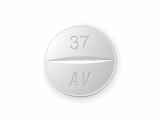What was the first pharmacy
The origin of the first pharmacy can be traced back to ancient civilizations, such as the Mesopotamians, Egyptians, and Greeks. These civilizations laid the foundation for the development of medicine and the practice of pharmacy. In Mesopotamia, for example, the Sumerians recorded their knowledge of medicinal plants on clay tablets, which were then passed down to later civilizations.
In ancient Egypt, the role of the pharmacist was recognized and respected, with specialized knowledge of herbs and medicines. The Ebers Papyrus, one of the oldest known medical texts, documented over 700 remedies and prescriptions, providing insights into the practice of pharmacy at the time.
It was the Greeks, however, who made significant advancements in pharmacy. The Greek physician Hippocrates, often referred to as the "Father of Medicine," emphasized the importance of a holistic approach to healthcare and the use of natural remedies. His teachings laid the groundwork for the development of pharmaceutical compounding, the process of preparing customized medications for patients.
As civilization progressed, pharmacy became a more organized and regulated profession. The Islamic Golden Age, spanning from the 8th to the 14th centuries, saw the establishment of pharmacies as separate entities, with pharmacists offering services such as compounding, dispensing, and consulting with patients.
Throughout history, the practice of pharmacy has evolved and adapted, incorporating new discoveries and technologies. Today, pharmacies play a crucial role in healthcare, providing access to essential medications and patient care. The origins of the first pharmacy may be ancient, but the impact of pharmacy on society continues to be profound.
The Ancient World's Healing Traditions
The ancient world was home to a rich variety of healing traditions that were passed down through generations. These traditions played a crucial role in treating illnesses and maintaining overall well-being. From Egypt to China, civilizations developed their own unique approaches to medicine and healing.
Egypt: A Haven of Medicinal Knowledge
In ancient Egypt, medicine was closely intertwined with religion and magic. The Egyptians believed that health and illness were influenced by gods and supernatural forces. They developed a vast array of medicinal plants and herbs, many of which are still used today. Medical practitioners in Egypt were well-versed in the use of herbal remedies, as well as surgeries and bandaging techniques.
China: Balancing the Yin and Yang
The ancient Chinese healing traditions were rooted in the concept of balancing the opposing forces of Yin and Yang. According to Chinese medicine, illness was caused by an imbalance in these energies. Treatments focused on restoring harmony by using acupuncture, herbal medicine, and dietary changes. The Chinese also developed techniques such as tai chi and qigong, which aimed to promote physical and mental well-being.
Greece: The Birthplace of Modern Medicine
Perhaps the most influential of all ancient healing traditions is the Greek approach to medicine. Ancient Greek physicians, such as Hippocrates and Galen, laid the foundation for Western medicine. They believed in a holistic approach to health, viewing the body as a complex system that required balance. Greek physicians emphasized the importance of diet, exercise, and cleanliness in maintaining good health.
- The Egyptian, Chinese, and Greek healing traditions all contributed to the development of modern medicine.
- These ancient civilizations recognized the power of nature and the body's innate ability to heal.
- Herbal remedies, acupuncture, and dietary changes were common elements of their healing practices.
- Each tradition had its own unique approach, but all aimed to restore balance and promote overall well-being.
Looking back at these ancient healing traditions, we can appreciate the wisdom and knowledge that our ancestors possessed. While modern medicine has made significant advancements, it is important to recognize the valuable contributions of the ancient world in our understanding of health and healing.
Ancient Egypt: Birth of Pharmacy
Ancient Egypt played a significant role in the birth of pharmacy as we know it today. The Egyptians were pioneers in the field of medicine, developing a range of pharmaceutical practices and techniques that laid the foundation for the future advancements in pharmacy.
Herbs and Plants: The Egyptians were known for their extensive knowledge of herbs and plants and their therapeutic uses. They believed that plants possessed powerful healing properties and used them in various forms to treat a wide range of ailments. They documented their medicinal knowledge on papyrus scrolls, creating one of the earliest known pharmacopoeias.
Formulation and Compounding: The Egyptians were skilled in the art of formulation and compounding. They developed sophisticated methods to extract and process medicinal compounds from herbs and plants, creating tinctures, ointments, and powders. These formulations were carefully prepared and administered to patients based on their specific needs.
Medical Practitioners: Ancient Egypt had specialized medical practitioners known as "priest-physicians" who were responsible for the healthcare of the pharaohs and the elite. These physicians had extensive knowledge of pharmacy and were trained in the art of diagnosis, treatment, and prescribing medications. They played a crucial role in advancing the field of pharmacy in ancient Egypt.
Pharmacy in Daily Life:
Pharmacy was an integral part of everyday life in ancient Egypt. The Egyptians relied heavily on pharmacy for the treatment of various illnesses and ailments. They used herbal remedies to alleviate pain, soothe skin conditions, and promote overall wellbeing. Pharmacy played a vital role in their religious and spiritual practices as well, with certain herbs and plants being used in religious rituals and ceremonies.
The Legacy of Ancient Egypt:
The knowledge and practices developed by the ancient Egyptians laid the foundation for the future advancements in pharmacy. The concepts of herbal medicine, formulation, and compounding pioneered by the Egyptians continue to influence modern pharmacy practices. The Egyptian pharmacopoeia provided a valuable resource for future generations, becoming a reference point for the development of pharmacological studies and pharmaceutical innovations.
In conclusion, ancient Egypt was the birthplace of pharmacy and made significant contributions to the field. The Egyptian knowledge and practices in herbal medicine, formulation, and compounding laid the foundation for the development of pharmacy as a profession and continue to shape modern pharmaceutical practices today.
The Greeks and the Development of Apothecaries
The Greeks played a significant role in the development of apothecaries, which were the forerunners of modern pharmacies. In ancient Greece, medical practices were deeply rooted in religious and mystical beliefs. Healing was often associated with the worship of gods and involved the use of herbs, minerals, and animal parts.
Ancient Greek physicians, such as Hippocrates and Dioscorides, made important contributions to the field of medicine and pharmacology. They conducted extensive research and documented the properties of various plants and substances. Their works, such as "On the Nature of Medicaments," became the foundation for the development of apothecaries.
In ancient Greece, apothecaries were known as "pharmakon," which means both "poison" and "remedy." This duality reflects the understanding that substances could have both harmful and beneficial effects on the human body. Apothecaries in ancient Greece were primarily concerned with compounding and dispensing remedies, often using ingredients from their own gardens or collected from nature.
The role of apothecaries expanded beyond the preparation of medicines. They also provided healthcare advice, diagnosed ailments, and performed minor surgical procedures. Apothecaries were highly respected members of the community and played an integral role in the healthcare system of ancient Greece.
Inside an apothecary's shop, various jars and containers would be filled with different herbs, oils, and powders. Labels were attached to these containers to ensure proper identification and organization. Additionally, apothecaries often had a mortar and pestle, which they used to grind and mix different ingredients to create medicines.
The establishment and practice of apothecaries in ancient Greece laid the foundation for the development of modern pharmacies. The knowledge and practices developed by Greek physicians and apothecaries have had a lasting impact on the field of pharmacology and medicine.
Rise of Islamic Pharmacy in the Middle East
The rise of Islamic pharmacy in the Middle East can be traced back to the 9th century during the Islamic Golden Age. The Muslim world witnessed significant advancements in various scientific fields, including medicine and pharmacy.
Islamic scholars played a crucial role in the development of pharmacy during this period. They translated and studied the works of ancient Greek and Roman physicians, such as Hippocrates and Galen, as well as Indian and Persian medical texts. These scholars not only preserved the knowledge of the past but also expanded upon it, adding their own insights and discoveries.
Pharmacy Schools and Education
One of the key contributions of Islamic pharmacy was the establishment of pharmacy schools and the standardization of pharmacy education. In Cairo, Baghdad, and other major cities, pharmacists were required to undergo comprehensive training and pass examinations to obtain a license to practice. These schools provided a formal education in pharmacy and were instrumental in advancing pharmaceutical knowledge and practices.
The curriculum of these pharmacy schools included the study of medicinal plants, compounding and preparation of drugs, and the understanding of their therapeutic properties. Pharmacists were also trained in dosage calculations and the identification and treatment of various diseases. These schools became centers of learning and attracted scholars and students from around the Islamic world.
Advancements in Drug Manufacturing and Dispensing
Islamic pharmacy also witnessed significant advancements in drug manufacturing and dispensing. Pharmacists developed new techniques for extracting active ingredients from medicinal plants, improving the efficacy of herbal remedies. They also introduced new methods for compounding and preparing drugs, including the use of distillation and filtration.
The Islamic pharmacists also developed a system for dispensing medications known as the "Arabic prescription." This system involved writing down the recipe for the drug in detail, including the ingredients, their quantities, and the method of preparation. This ensured accuracy in the compounding of drugs and enabled pharmacists to replicate the recipe for future use.
In addition to advancements in drug manufacturing and dispensing, Islamic pharmacy also emphasized the importance of ethical practices. Pharmacists were expected to adhere to strict standards of professionalism and maintain the confidentiality of patient information. These principles laid the foundation for the modern practice of pharmacy.
The European Renaissance and the Emergence of Modern Pharmacy
The European Renaissance, which occurred in the 14th to 17th centuries, was a period of great intellectual and cultural advancement. During this time, there was a renewed interest in the study of science, including the field of pharmacy.
Pharmacy began to evolve as a distinct field of study during the Renaissance, with the development of more advanced techniques for compounding and preparing medications. Pharmacists started to experiment with new ingredients and methods, leading to the discovery of many important drugs.
One of the key figures in the development of modern pharmacy during the Renaissance was Paracelsus. Paracelsus was a Renaissance physician and alchemist who revolutionized the field of medicine by introducing the concept of using specific doses of drugs to treat diseases. He emphasized the importance of using chemical compounds derived from plants and minerals, and his ideas laid the foundation for modern pharmacology.
During this time, the first pharmacopoeias, which are books containing directions for the preparation and use of medicinal drugs, were published. These pharmacopoeias served as important references for pharmacists and provided standardized guidelines for compounding medications. They also included detailed descriptions of the medicinal properties of various substances, which helped further the development of pharmacy as a scientific discipline.
As the Renaissance progressed, new discoveries and advancements in pharmacy continued to emerge. Pharmacists began to establish their own guilds and organizations, which helped to regulate the profession and ensure the quality and safety of medications. This period of growth and innovation laid the foundation for the modern pharmacy practices that we see today.
Pharmacy Today: Modern Innovations and Practices
Innovations in Medications
Pharmacy today has seen significant innovations in medication development and delivery. New drugs are constantly being discovered and approved, allowing pharmacists to provide patients with more effective treatment options. Additionally, advancements in drug delivery systems have improved the convenience and efficacy of medication. For example, transdermal patches and inhalers have made it easier for patients to administer their medication and achieve the desired therapeutic effect.
Technological Advancements
The use of technology has also revolutionized the pharmacy industry in recent years. Many pharmacies now utilize electronic prescription systems and computerized medication dispensing machines, which help to reduce errors and streamline the medication dispensing process. Moreover, technology has enabled pharmacists to access and analyze patient health data more efficiently, leading to improved medication management and personalized treatment plans.
Pharmacist Consultations and Patient Education
In addition to dispensing medications, modern pharmacies prioritize pharmacist consultations and patient education. Pharmacists are increasingly viewed as valuable healthcare providers who can offer expert advice and guidance to patients. They play a crucial role in helping patients understand their medications, potential side effects, and proper usage. Pharmacies today often provide patient counseling areas where pharmacists can have private conversations with patients, ensuring that they have the necessary information to manage their medications effectively.
Expanded Services and Collaborations
Modern pharmacies have expanded their services beyond traditional medication dispensing. Many now offer services such as immunizations, health screenings, and medication therapy management. This diversification allows pharmacists to actively engage in preventive medicine and collaborate with other healthcare professionals to improve patient outcomes. Pharmacies also work closely with insurance providers and healthcare organizations to ensure seamless care coordination and medication adherence.
Focus on Patient Safety
In recent years, there has been a heightened emphasis on patient safety within the pharmacy profession. Pharmacists now play a crucial role in preventing medication errors and adverse drug reactions. They engage in medication reconciliation processes, reviewing a patient's medication history to identify any potential interactions or duplications. Pharmacists also educate patients on safe medication use, emphasizing the importance of following prescribed dosages and reporting any adverse effects.
Conclusion
Pharmacy today has come a long way from its ancient origins. With innovations in medications, advancements in technology, and a focus on patient care and safety, modern pharmacies are equipped to provide high-quality healthcare services to patients. Pharmacies are at the forefront of promoting wellness and play a vital role in improving patient outcomes through medication management, education, and collaboration with other healthcare professionals.
Follow us on Twitter @Pharmaceuticals #Pharmacy
Subscribe on YouTube @PharmaceuticalsYouTube





Be the first to comment on "What was the first pharmacy"